Collaboration. Education. Advocacy.
Why a Focus on Public Health is Important Now FROM
THE BOARD PRESIDENT & EXECUTIVE DIRECTOR
For nearly a decade, the Public Health Councils (PHC) has served as the region’s trusted leader in public health, bringing people together to address pressing health challenges. This year’s annual report highlights our ongoing efforts to build healthier communities across the Upper Valley. Throughout 2024, we collaborated with partners to implement strategies that foster health equity, expand access to services, and strengthen community resilience. Our work is grounded in shared action and data-driven solutions — and the results are a testament to the power of collective impact.
Looking ahead to 2025, we are preparing to confront new and urgent public health challenges that threaten to widen existing disparities. Federal funding uncertainties and resource constraints demand a coordinated, strategic response. To meet this moment, PHC is leading two critical initiatives: updating the Community Health Improvement Plan and engaging in a comprehensive strategic planning process to guide our next phase of growth. These efforts will align regional priorities and continue to position PHC as a catalyst for collaboration and advocacy.
As we embark on this next chapter, PHC remains committed to leveraging our role as a regional convener to advance impactful solutions. We are grateful for the continued support of our partners and supporters and look forward to working together to ensure that every individual in the Upper Valley has the opportunity to thrive.
Our Mission
To improve the health of Upper Valley residents through shared public health initiatives and services within a network of community stakeholders.
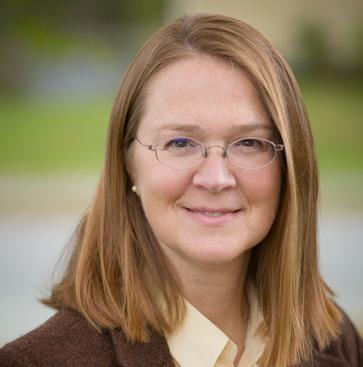
Alice Ely Executive Director
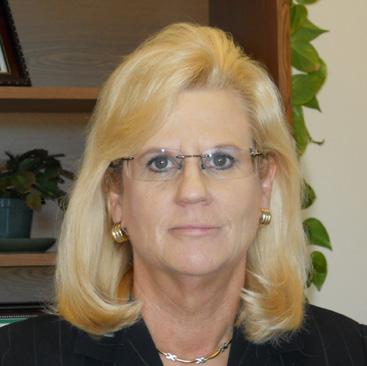
Suellen Griffin Board President
Our Vision
Working together, our Upper Valley community will be healthy, safe, supportive, and vital.
Projects that Moved the Needle
Health Equity
The pandemic exposed significant inequities in public health collaboration and resource distribution across the Upper Valley. We discovered a significant gap in our ability to connect with and serve people who identify as black, indigenous, or a person of color (BIPOC) even as data in Vermont and New Hampshire documented disparate rates of COVID infection and severe illness. Since 2020, PHC has made a concerted effort to support leadership development within the BIPOC community to ensure we all have the capacity to respond to public health emergencies as well as long-standing issues impacting health and wellbeing with this community of our neighbors.
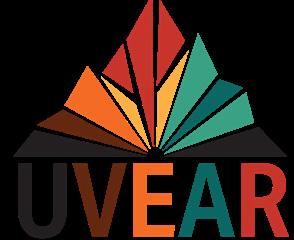
We support capacity building within the Upper Valley Equity and Anti-Racism Leadership Team (UVEAR), which conducts advocacy and community engagement activities. In 2024, UVEAR launched a biannual BIPOC Congress to uplift anti-racism work across the Upper Valley and build a shared vision of what the Upper Valley can be for historically marginalized people. Two events in 2024, March and November, brought together 21 individuals representing 15 groups and organizations. UVEAR members also worked with partners at Dartmouth Hitchcock Population Health to provide input on the 2024 Community Health Needs Assessment and begin a longer-term discussion of how to improve health care for BIPOC in the region.
In December 2024, recognizing that several Upper Valley organizations had launched programs to support members of the BIPOC community, PHC convened a BIPOC Program Collaboration Group to share information, resources, and communication strategies. Seven programs come together monthly to develop a shared calendar of events, streamline outreach, and explore other opportunities.
PHC is proud to support building leadership capacity and a stronger network of organizations and individuals to work towards a safe and supportive community for all.
PROJECT 2
Lebanon Public Health Needs Assessment
Lebanon’s City Manager, Shaun Mulholland, engaged PHC to assess how public health functions are accomplished by municipal employees and community partners. The goal is to feed information into the city’s strategic planning process relative to what programs and services should be created, enhanced, or eliminated. After a year of data review, gathering input from municipal officials, social service providers, and community members, PHC will deliver the final report and recommendations to the Lebanon City Council in May 2025.
PHC seeks to enhance our relationship with the region’s municipalities. This report will guide our assessment of vulnerabilities and needs and help us develop a menu of services we can offer.
In the past year, our clinics have significantly impacted public health, thanks to the dedication of our volunteers, reinforcing our commitment to health equity and community service.
6 FLU VACCINE CLINICS HELD
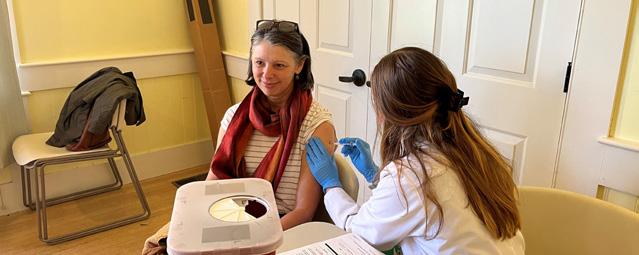
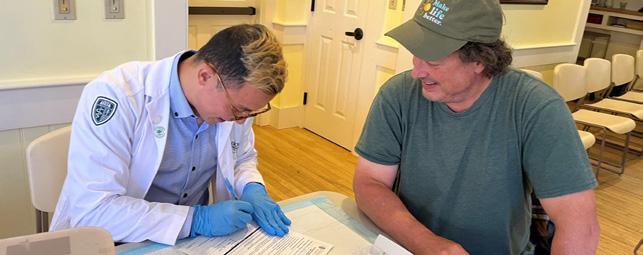
29 COMMUNITY VOLUNTEERS
932 FREE VACCINES GIVEN
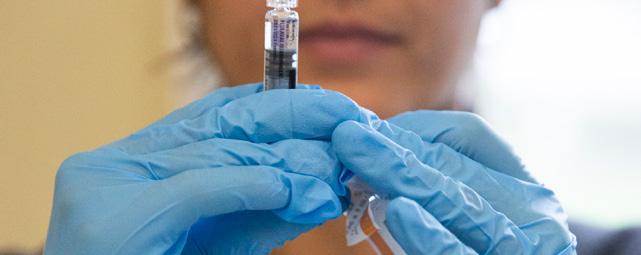

39
NEW VOLUNTEERS TRAINED
10 MEDICAL VOLUNTEER SUPERVISORS
80 STUDENTS VOLUNTEERED FOR AT LEAST ONE CLINIC
248 VOLUNTEER HOURS TOTAL
Community Nurse Connection
Under the capable leadership of Kristin Barnum, CNC advocates for and supports a growing network of Community Nurses who care for people, especially older adults, who struggle to live on their own, and who are not accessing needed services. Kristin plays a critical role in guiding communities interested in Community Nursing and collaborating with health care organizations to help them understand the role of the nurse. CNC also helps sustain Community Nursing through a robust documentation system and structured mutual support for Community Nurses. CNC understands vulnerable people are falling through the cracks of our health care system and works tirelessly to fill the need.
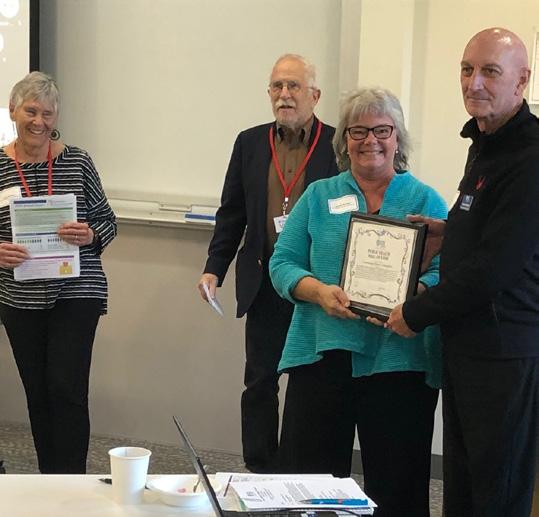
“The PHC is the primary trusted organization for conversation
Voices From Our Community
As long-time Upper Valley residents, who have worked in healthcare for decades, we appreciate the need for communication and collaboration; providers, institutions and organizations are too often siloed while trying to serve the same population.
The Public Health Council plays an important role in identifying community needs and has been effective in bringing together disparate elements of the human service network for the benefit of our collective health. In the current climate of unpredictable revenue sources, the need for synergy and coordination has never been greater. We continue to enthusiastically support the Public Health Council of the Upper Valley.
Peter Mason, MD
Laurie Harding MS, RN
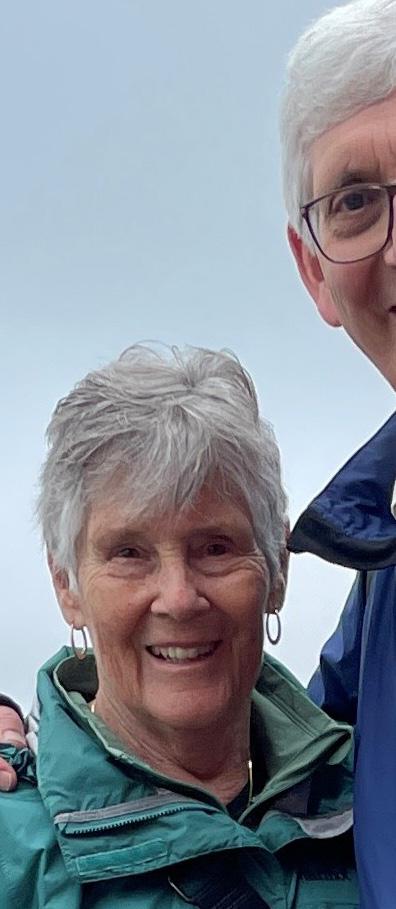
Hall of Fame Awardees
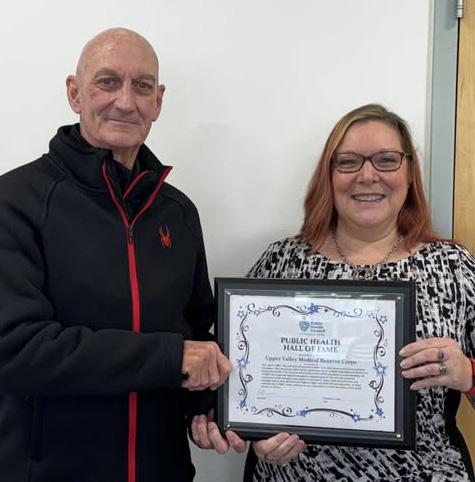
Upper Valley Medical Reserve Corps
Our region’s MRC Unit 1776, formed in 2008, includes more than 150 medical and non-medical volunteers. This rare bistate unit is led by coordinators from Vermont Department of Health and Dartmouth Health. From Tropical Storm Irene to the COVID pandemic to recent flooding, the UVMRC has supported regional emergency response capacity. The unit also promotes community health through event support at vaccination clinics, road races and fairs, and trainings such as Stop the Bleed, Be Bright at Night, and NARCAN administration. In these activities the UVMRC builds resilience in our communities to buffer the effects of the health threats we all face.
conversation and planning about health challenges in the Upper Valley.”
- PHC Board Member
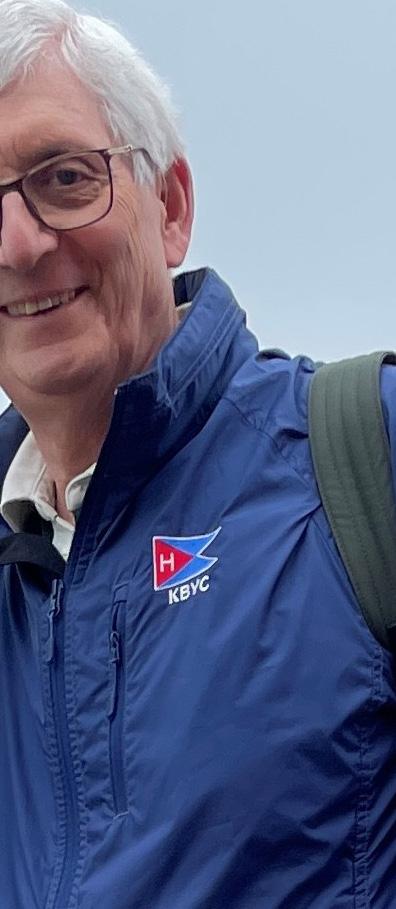
As a friend of the PHC, you know how vital our work is to our local communities. We believe the financial support you provide is an endorsement of our ability to meet local needs — to do the work you value as a community. Please join our dedicated staff, board members, friends, partners and local communities who invest in what they believe in. Make your tax-deductible contribution by Check, PayPal or Venmo at: uvpublichealth.org/donate We are tremendously grateful for the financial support we receive every year from individuals, foundations, corporations, and towns across the Upper Valley. For a full list of donors, please visit our PHC Donate page.
Childhood Lead Screening
In 2024, PHC joined with partners to address gaps in childhood lead exposure testing among 1- and 2-year-old children in Windsor County, VT, with the support of the Greater Upper Valley Integrated Service Team* (GUVIST).

PHC hosted a summer intern who completed a clinical practice improvement project to learn why some children were not tested or why some tests failed. The intern conducted medical record reviews of over 75 children in 10 pediatric practices and reviewed testing protocols. Outcomes of the project included prompting clinic staff to follow up on missed tests, refocus on clinical need for testing at both age 1 and 2, and making recommendations for process improvement, and parent education.
Prior to this project, in April 2024, 15% of 1- and 2-year-olds in Windsor County were not tested (70 children). One year later, 12% of 1- and 2-year-olds were not tested (96 children), demonstrating positive progress. Additional projects are planned for 2025 to address further recommendations.
*GUVIST, fiscally sponsored by PHC and supported by the Couch Family Foundation, provides technical assistance for multi-agency networks to build working relationships that move beyond collaboration to integration of leadership, decision-making, operations, and responsibility.
PROJECT 5
Bi-State Legislative Event
In November 2024, PHC brought together local policymakers, public health leaders, and community advocates for its annual legislative event. This annual gathering is all about finding solutions to some of our region’s most pressing health challenges—and sparking collaboration to create lasting change. By sharing real-life stories and practical recommendations, PHC empowers policy leaders to make informed choices that improve lives in the Upper Valley.
This year’s topics included addressing homelessness, strengthening our region’s nursing workforce, and understanding the environmental risks of vaping devices. We were joined by 11 state legislators (6 from New Hampshire and 5 from Vermont) and 8 public health leaders and community advocates. Feedback from this year’s event was overwhelmingly positive. Attendees appreciated the practical ideas, stories, and data shared.
As follow up to the event, PHC worked with local experts to distribute four additional policy briefs to all the legislators in our bi-state region on topics suggested in post-event evaluation. Looking ahead, PHC will continue to host this event and provide legislators with resources and policy briefs, ensuring they have the tools they need to create meaningful change. Together, we can tackle the challenges facing the Upper Valley and make it a healthier, more equitable place for everyone. For more information about our policy work, visit PHC’s Advocacy webpage
Our Vision for the Future
Over the past 5 years, PHC responded to partner requests for support during the COVID pandemic and we pivoted our resources to provide all the help we could. We have also taken up requests to guide numerous community-based health equity initiatives and provide fiscal sponsorship for emerging public health-related organizations and programs. We currently hold eight (8) fiscal sponsorship relationships.
Moving forward and guided by partner input, PHC will focus on these four growing priorities to deepen our impact and ensure sustainable growth:
A. Expanding Community Engagement and Education. There is a critical need for accessible, actionable health information to empower local individuals and families. PHC will explore ways to improve health literacy and empower residents with tools for informed decision-making.
B. Addressing Health Disparities. The pandemic exposed significant inequities in public health collaboration and resource distribution. PHC will explore the causes of these disparities and develop strategies to build a healthier, more equitable Upper Valley.
C. Strengthening Local Governance. Many town officials and public health officers juggle multiple roles and lack resources or expertise to address evolving public health needs. PHC will explore ways to bridge that gap and provide tailored support and training.
D. Advancing Innovation through the Public Health Incubator Program. Local initiatives often face barriers like limited funding and administrative support. PHC seeks to nurture these groups and will explore ways to empower leaders to scale solutions, overcome barriers, and drive community impact.
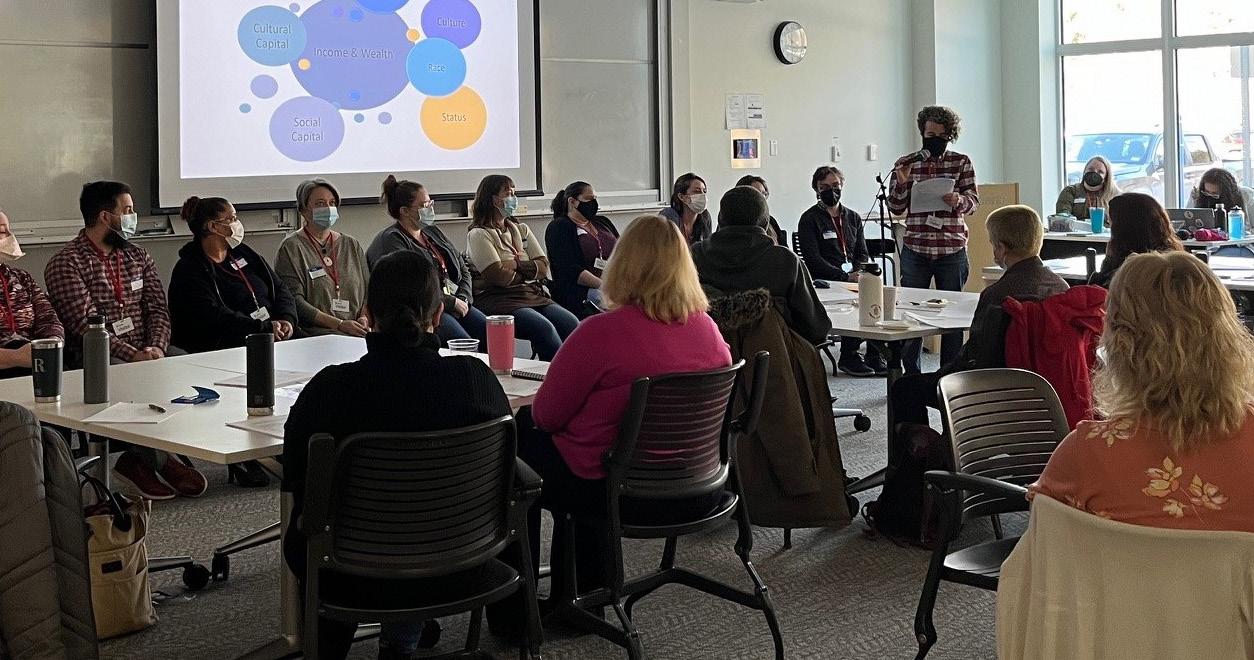
2025 Board of Directors
Suellen Griffin, Chair
Amanda Jordan Smith, Vice Chair
W. Brett Mayfield, Immediate Past Chair
Jen Barkley, Treasurer
Nancy Bloomfield, Secretary
Mark Bradley
Rudolph (Rudy) Fedrizzi, MD
2024 Financials
Shaun Mulholland
Bise Wood Saint Eugene
Andrea Smith
Julius Turner
Kym Williams
Alexandra DuToit, Ex-Officio, Tuck Board Fellow
Total Expenses
$355,653
Program - $263,310 - 74%
Administration - $70,707 - 20%
Fundraising - $21,636 - 6%
Total Revenue $355,583
Individuals - $7,860 - 2%
Corporations - $118,174 - 35%
Foundations - $133,728 - 40%
Municipalities - $46,380 - 14%
State Government - $14,655 - 4%
Adm Fee - $11,203 - 3%
Interest - $3,583 - 1%
